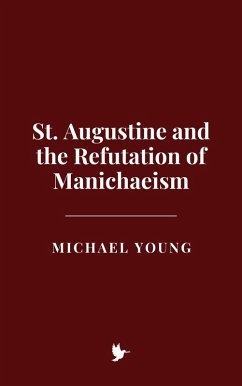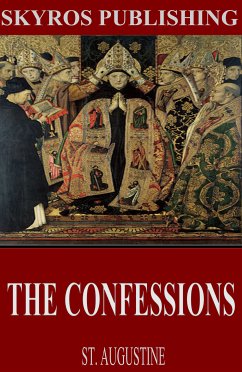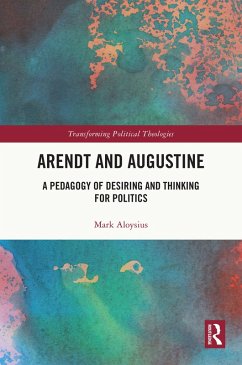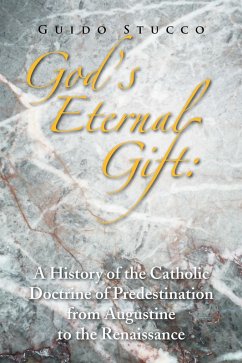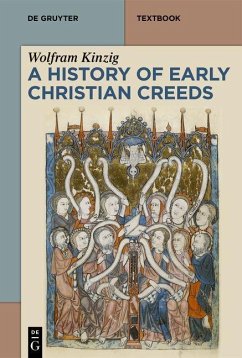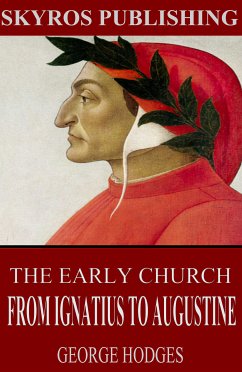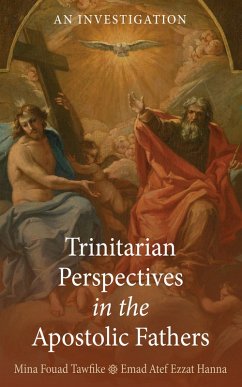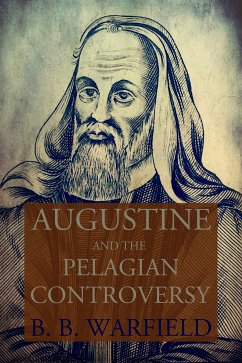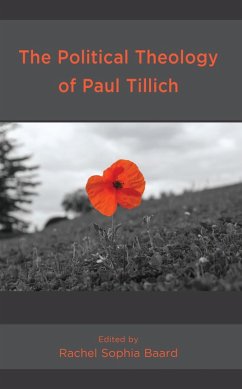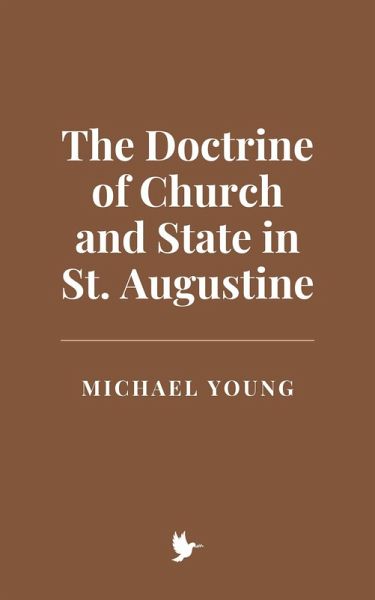
The Doctrine of Church and State in St. Augustine (eBook, ePUB)

PAYBACK Punkte
0 °P sammeln!
This work explores the political and theological thought of Saint Augustine of Hippo, examining the profound influence of his writings on Christian political theory and their lasting impact on medieval and modern political thought. Central to Augustine's thought is his conception of the relationship between the earthly city and the heavenly city, a framework that provides a theological perspective on the role of the state, authority, and justice in a fallen world. Through his seminal work The City of God, Augustine presents a vision of history as a linear progression guided by divine providenc...
This work explores the political and theological thought of Saint Augustine of Hippo, examining the profound influence of his writings on Christian political theory and their lasting impact on medieval and modern political thought. Central to Augustine's thought is his conception of the relationship between the earthly city and the heavenly city, a framework that provides a theological perspective on the role of the state, authority, and justice in a fallen world. Through his seminal work The City of God, Augustine presents a vision of history as a linear progression guided by divine providence, moving toward the ultimate establishment of God's eternal kingdom. His critique of the Roman Empire, his reflections on the nature of political authority, and his emphasis on the limits of political power have had a significant influence on both ecclesiastical and secular political thought.
Augustine's thoughts on the necessity of political authority to maintain order and curb human sin, alongside his skepticism about the ability of any earthly institution to achieve perfect justice, laid the foundation for later Christian political thought. His theology of history, which emphasizes the tension between the temporal and eternal, and his reflections on the role of coercion in maintaining religious unity continue to shape debates on the role of religion in public life and the nature of political authority.
The work also traces Augustine's influence on thinkers such as Thomas Aquinas, who built upon Augustine's ideas to develop a Christian natural law theory, and examines how Augustine's views on church-state relations have influenced modern concepts of political authority, religious freedom, and justice. Through his engagement with issues of war, peace, the nature of justice, and the church's role in political matters, Augustine's political theology remains a vital resource for understanding contemporary debates on the moral limits of state power and the responsibilities of political rulers in relation to divine law.
In sum, Augustine's vision of the relationship between the Church, the state, and divine providence continues to offer valuable insights for political theory, providing a theological framework for addressing questions of justice, power, and the role of religion in public life in both historical and contemporary contexts.
Augustine's thoughts on the necessity of political authority to maintain order and curb human sin, alongside his skepticism about the ability of any earthly institution to achieve perfect justice, laid the foundation for later Christian political thought. His theology of history, which emphasizes the tension between the temporal and eternal, and his reflections on the role of coercion in maintaining religious unity continue to shape debates on the role of religion in public life and the nature of political authority.
The work also traces Augustine's influence on thinkers such as Thomas Aquinas, who built upon Augustine's ideas to develop a Christian natural law theory, and examines how Augustine's views on church-state relations have influenced modern concepts of political authority, religious freedom, and justice. Through his engagement with issues of war, peace, the nature of justice, and the church's role in political matters, Augustine's political theology remains a vital resource for understanding contemporary debates on the moral limits of state power and the responsibilities of political rulers in relation to divine law.
In sum, Augustine's vision of the relationship between the Church, the state, and divine providence continues to offer valuable insights for political theory, providing a theological framework for addressing questions of justice, power, and the role of religion in public life in both historical and contemporary contexts.
Dieser Download kann aus rechtlichen Gründen nur mit Rechnungsadresse in A, B, CY, CZ, D, DK, EW, E, FIN, F, GR, H, IRL, I, LT, L, LR, M, NL, PL, P, R, S, SLO, SK ausgeliefert werden.




